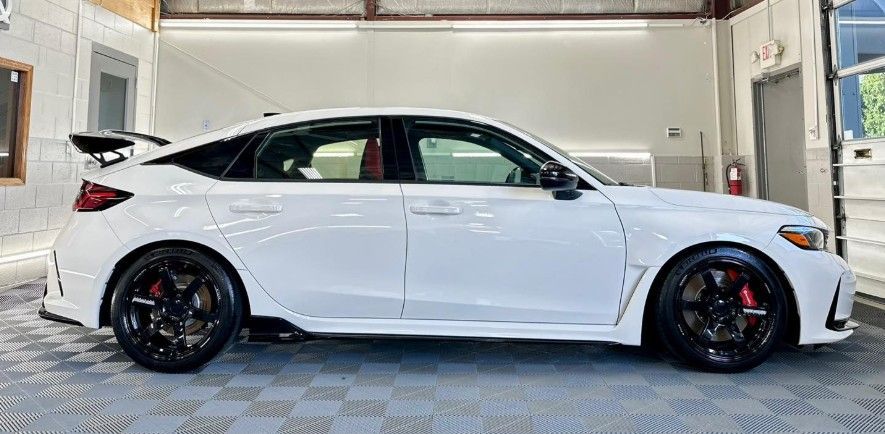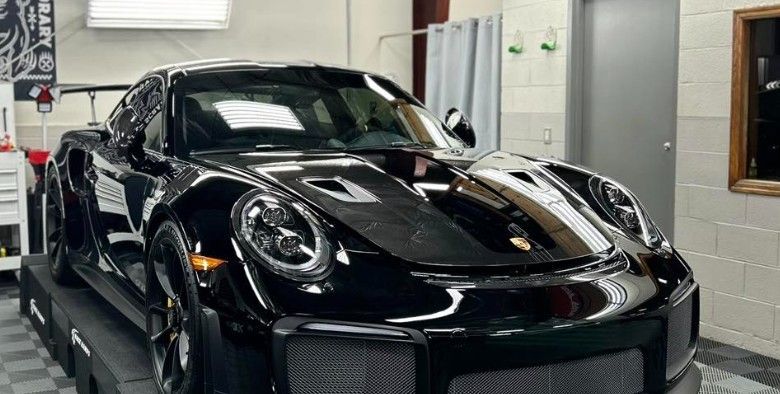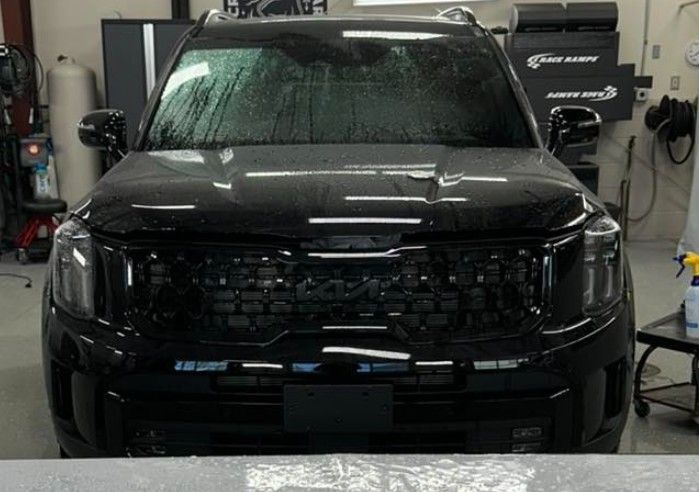How Long Does It Take to Ceramic Coat a Car and What Impacts the Time?
Ceramic coating has become a popular solution for car owners looking to protect their vehicle’s paintwork from the elements and maintain its aesthetic appeal. The process involves applying a liquid polymer to a car’s exterior, which bonds with the paint to create a durable, protective layer. However, a common question that arises is, "How long does it take to ceramic coat a car?" The answer depends on various factors, including the type of vehicle, the condition of its paint, and the specific ceramic coating product being used.
In this blog post, we'll break down the ceramic coating process, explore the factors that influence the time it takes to complete, and provide insight into why the process is not as quick as it may initially seem. Whether you're considering getting your car ceramic-coated or simply curious about the procedure, this guide will help you understand the timeline and factors involved.
1. How Long Does It Take to Ceramic Coat a Car?
Typical Timeline:
The process of ceramic coating can take anywhere from a few hours to a full day, depending on the factors mentioned above. On average, for a typical sedan, it can take around 4 to 6 hours, while larger vehicles like SUVs and trucks may take up to 8 hours or more. Below is a breakdown of the typical timeline for the ceramic coating process for different car types:
- Sedans: 4-6 hours
- SUVs: 6-8 hours
- Trucks: 8+ hours
Standard Procedure and Steps in the Ceramic Coating Process:
- Washing: Before any coating is applied, the vehicle must be thoroughly washed to remove dirt, grime, and other contaminants. This stage is crucial, as any leftover debris can affect the bonding of the coating. Washing typically takes about 1-2 hours.
- Paint Correction: If the car’s paint has imperfections such as swirl marks, scratches, or oxidation, paint correction may be necessary. This step can take anywhere from 2 to 5 hours, depending on the severity of the imperfections.
- Coating Application: The actual ceramic coating application process involves carefully applying the product to the vehicle’s paintwork. This step typically takes around 1-2 hours, depending on the size of the car and the number of layers applied.
- Curing: After the coating is applied, it must cure to bond effectively with the paint. This curing period can vary but generally takes between 2 to 12 hours, depending on the type of ceramic coating used.
Breakdown of Individual Tasks:
- Washing: 1-2 hours
- Paint Correction: 2-5 hours
- Coating Application: 1-2 hours
- Curing: 2-12 hours
In total, the average time required for
ceramic coating can range from 4 to 12 hours, with curing time possibly extending beyond the appointment.

2. How Different Factors Extend or Shorten the Timeline
The time it takes to complete a ceramic coating job can be influenced by several factors, such as the type of vehicle, the condition of the paint, and the type of ceramic coating product used.
1. Paint Correction Needs:
One of the most time-consuming aspects of the ceramic coating process is paint correction. If your vehicle's paint is in poor condition, it will require additional time for sanding, polishing, and removing imperfections. This can add several hours to the overall process.
2. Multiple Layers of Coating:
Some vehicles may require more than one layer of
ceramic coating for added protection and enhanced gloss. Applying multiple layers typically increases the time it takes to complete the process, as each layer needs to cure before the next one is applied. Depending on the number of layers, this could add several additional hours.
3. Drying and Curing Time:
Ceramic coatings need time to cure properly after application. While some coatings can cure within a few hours, others may require 12 to 24 hours for full curing. The curing process is essential for the coating to bond properly and deliver the maximum level of protection.
3. Why Ceramic Coating Takes Time: Key Factors That Influence the Process
Ceramic coating is a meticulous process that requires careful attention to detail. Several factors influence how long the process takes, and understanding these factors will help explain why the timeline may vary.
- Paint Condition: A car with a well-maintained, clean paint surface will require less time for preparation. However, if the paint has imperfections, the time for paint correction can significantly increase the overall duration of the ceramic coating process.
- Type of Ceramic Coating Product Used: Different ceramic coatings have different curing times and application methods. For instance, some coatings may require more time to apply, while others may require more time to fully cure. Higher-end coatings like
Crystal Serum Ultra or
Gtechniq coatings tend to be more durable but may require longer curing times to achieve optimal results.
- Experience and Expertise of the Installer: The skill of the technician performing the ceramic coating process plays a significant role in how quickly and efficiently the job is completed. An experienced installer will be able to apply the coating more quickly and with greater precision, which can reduce the overall time.
4. Type of Ceramic Coating Product Used
The type of ceramic coating you choose can affect the time it takes to apply the coating. Some ceramic coatings come in simple one-layer formulas that cure relatively quickly, while others may require multiple layers for optimal protection and durability. Additionally, premium coatings may require longer curing times to ensure the best possible finish. As mentioned earlier, Crystal Serum Ultra and other top-tier products may require extended curing times, typically lasting from 12 hours up to 24 hours.
5. Importance of Each Factor in Determining Total Time
Each factor in the ceramic coating process contributes to the total time needed. From washing and paint correction to applying the coating and allowing it to cure, every step is necessary to ensure the final result is a durable, protective finish for your vehicle. While it may be tempting to rush through the process, cutting corners on any step will compromise the effectiveness of the coating and potentially lead to poor results.
- Proper Prep: Ensuring the paint surface is clean and smooth is crucial for optimal adhesion and longevity of the ceramic coating.
- Coating Application: Applying the coating evenly and allowing it to cure properly ensures maximum protection.
- Curing: Rushing the curing process can lead to bonding issues, reducing the longevity and performance of the coating.
6. How Weather Impacts the Coating Process
Weather conditions play a significant role in the ceramic coating process. Ideally, ceramic coating should be applied in a controlled environment with a temperature range between 50°F and 80°F (10°C to 27°C). Factors like humidity, rain, and extreme heat can delay or affect the curing process. For example:
- High Humidity can extend curing time, as moisture in the air can interfere with the bonding process.
- Rain or Excessive Moisture can prevent the coating from curing properly, leading to a less durable finish.
- Extreme Heat can cause the coating to cure too quickly, resulting in an uneven application or issues with bonding.
If you're getting your car ceramic-coated in a region with unpredictable weather, it may be best to wait for a dry, temperate day to schedule the service to ensure the best possible results.

Conclusion
Ceramic coating is a valuable investment for your vehicle, providing lasting protection and enhancing its appearance. However, the process requires time, patience, and attention to detail to achieve the desired results. From the initial washing and paint correction to the final curing process, several factors determine how long it takes to ceramic coat a car. Understanding these factors will help you set realistic expectations for your ceramic coating service and ensure that you get the highest quality finish.
Whether you're opting for a quick, basic coating or a premium, multi-layer application, always remember that a properly done ceramic coating requires time. Trust the process, and your vehicle will benefit from years of enhanced protection and shine.




